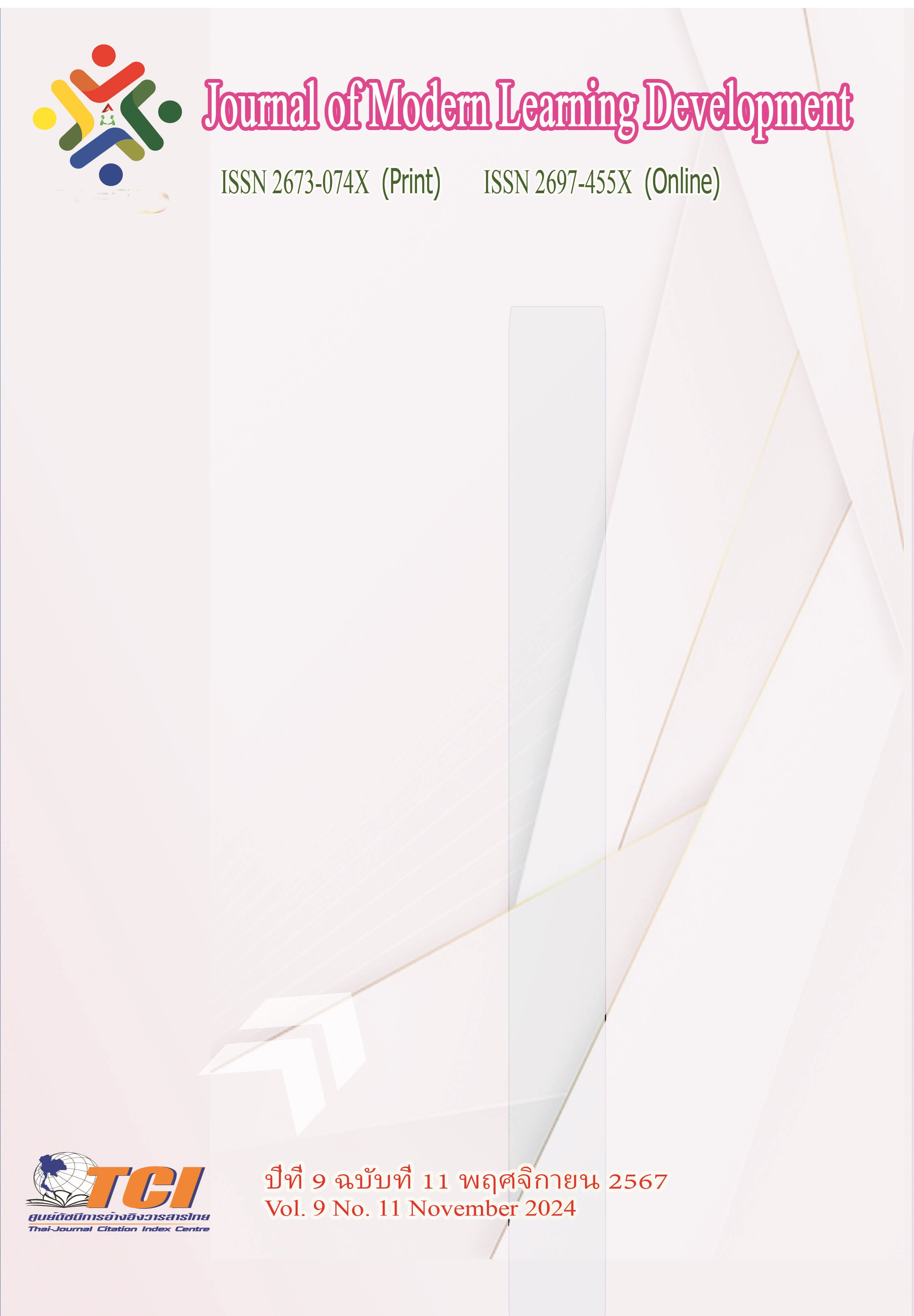Guidelines for Driving Tourism Under Policies for Sustainability
Main Article Content
Abstract
Sustainability is tourism that has quality, including quality of life, quality of community, quality of experience and quality of environment and culture. It is tourism that is still a continuation of tourism that is considered tourism and It is tourism that takes into account the balance between the needs of tourists and the services or tourism resources and the potential of those involved in tourism management. Therefore, sustainable tourism has scope for promotion. Tourism will be sustainable. It must have tourists visiting regularly. There are tourism resources that continually attract the attention. There are tourism service activities that generate profits in return. There are improvements and changes to the service and has minimal impact on the natural environment, society, and culture.
Driving a successful sustainable tourism policy must include the ability of tourists to use the services. Convenience of traveling and using travel services, access to tourist attractions including the ability to entertain tourists. In addition, the development of tourist attractions must develop tourism activities that are consistent with and suitable for tourist attractions to meet the needs of tourists.
Article Details
References
กระทรวงการท่องเที่ยวและกีฬา. (2564). แผนปฏิบัติราชการรายปี (พ.ศ. 2565). ออนไลน์. สืบค้นเมื่อ 3 มีนาคม 2567. แหล่งที่มา: https://secretary.mots.go.th/ewtadmin/ewt/secretary/down load/article/article_20220610151812.pdf.
คณะกรรมการนโยบายการท่องเที่ยวแห่งชาติ. (2566). แผนพัฒนาการท่องเที่ยวแห่งชาติ ฉบับที่ 3 (พ.ศ. 2566 – 2570). ออนไลน์. ออนไลน์. สืบค้นเมื่อ 3 มีนาคม 2567. แหล่งที่มา: secretary. mots.go.th/download/article/article_ 20230 327145011 .pdf.
จันทร์จิรา สุขบรรจง. (2559). การพัฒนาการท่องเที่ยวอย่างยั่งยืนของหนานมดแดง อ่าเภอป่าพะยอม จังหวัดพัทลุง. ปริญญานิพนธ์ศิลปศาสตรมหาบัณทิต. บัณฑิตวิทยาลัย: มหาวิทยาลัยกรุงเทพ.
จุติมา บุญมี และสุธิรา ปานแก้ว. (2560). แนวคิดการพัฒนาบุคลากรด้านการท่องเที่ยวโดยใช้หลักจิตใจให้บริการ (Service Mind) เพื่อคุณภาพการบริการและคุณภาพชีวิต. The 4th International and 3rd National Conference “Environmental Friendly Tourism for Sustainable Development”, 440-455.
ธัญรดา ดวงแก้ว และ นัทนิชา หาสุนทร. (2563) การมีส่วนร่วมของประชาชนตามหลักการท่องเที่ยวอย่างยั่งยืนของหมู่บ้านท่องเที่ยวเชิงอนุรักษ์บ้านไทรน้อย จังหวัดพระนครศรีอยุธยา. วารสารมนุษยศาสตร์และสังคมศาสตร์ มหาวิทยาลัยราชพฤกษ์. 6 (1), 43-44.
ธนกฤต แดงทองดี.(2565). การท่องเที่ยวเชิงนิเวศน์ (Ecotourism): การท่องเที่ยววิถีอนุรักษ์ ผสานคน กับ ธรรมชาติ เป็นหนึ่งเดียวกัน. มูลนิธิสืบนาคะเสถียร.
นิสากร ยินดีจันทร์, ภูริพัฒน์ แก้วตาธนวัฒนา และ สันดุสิทธิ์ บริวงษ์ตระกูล. (2564). การพัฒนาศักยภาพชุมชนในการจัดการท่องเที่ยวอย่างยั่งยืนกรณีศึกษา เครือข่ายท่องเที่ยวโดยชุมชนจันทบุรี. วารสารมนุษยศาสตร์และสังคมศาสตร์ มหาวิทยาลัยนครพนม. 11 (1), 257-258.
นเรศ เหล่าพรรณราย. (2560). แนวโน้ม Digital Marketing ปี 2017. ออนไลน์. ออนไลน์. สืบค้นเมื่อ 3 มีนาคม 2567. แหล่งที่มา: https://money.sanook.com/451083/
ปรัชญา บุญเดช. (2561). แนวทางการพัฒนาการท่องเที่ยวถ้ำเลเขากอบ อำเภอห้วยยอด จังหวัดตรัง. วารสารการจัดการธุรกิจ มหาวิทยาลัยบูรพา. 7 (2), 122-138.
ปริวรรต สมนึก. (2565). นวัตกรรมการท่องเที่ยวโดยชุมชน. อุบลราชธานี : โรงพิมพ์มหาวิทยาลัยอุบลราชธานี.
พัฒนเดช อาสาสรรพกิจ. (2559). ท่องเที่ยวยุคดิจิตอล. ออนไลน์. สืบค้นเมื่อ 3 มีนาคม 2567. แหล่งที่มา: http://www.komchadluek.net/news/ economic/224484.
พิชญาพร ศรีบุญเรือง และฉลองศรี พิมลสมพงศ์. (2564). การพัฒนาคุณค่าแหล่งท่องเที่ยวเพื่อรองรับนักท่องเที่ยวศักยภาพสูงในประเทศไทย. วารสารเทคโนโลยีภาคใต้. 14 (1), 6.


